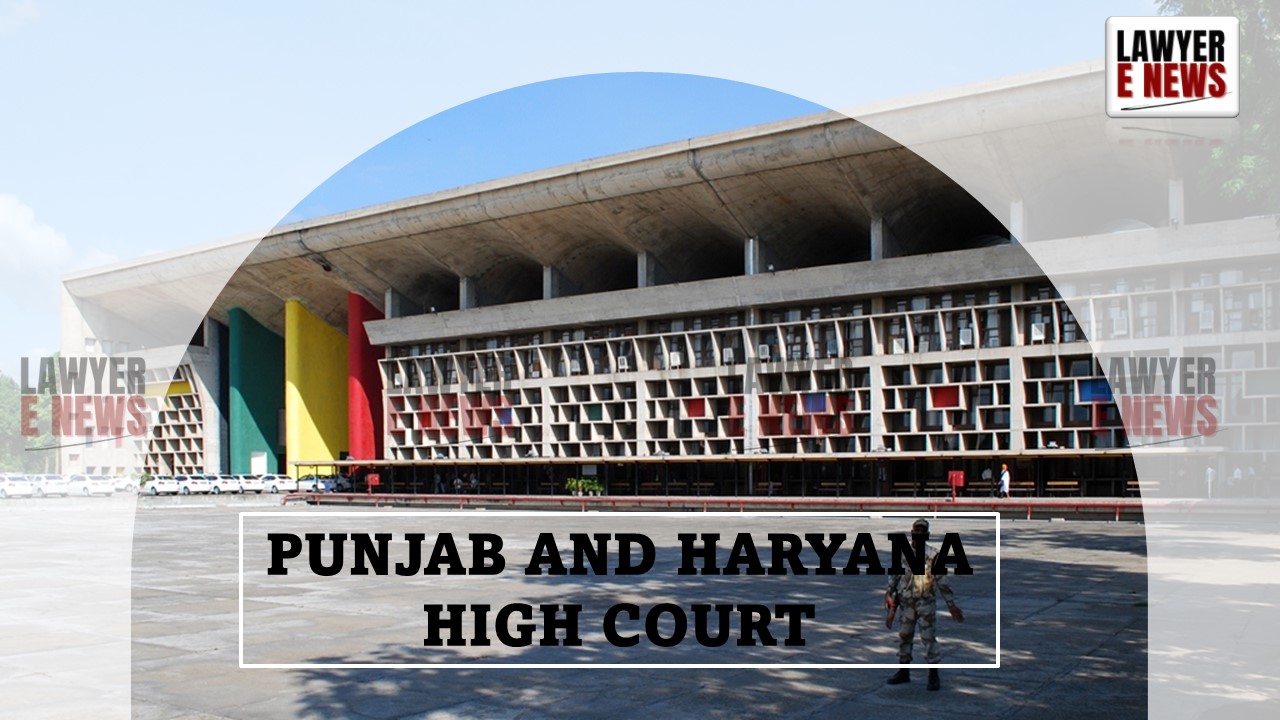-
by Admin
15 February 2026 5:35 AM



Punjab and Haryana High Court at Chandigarh, in the case of Sohail Akhtar @ Machar v. State of Punjab, granted regular bail to the petitioner, who had been in custody for over four years in connection with a murder case. Citing the constitutional right to a speedy trial under Article 21 of the Indian Constitution, the Court found that the prolonged detention without substantial trial progress justified the petitioner’s release on bail, subject to stringent conditions.
The case stems from an incident that occurred on May 25, 2020, where the petitioner, Sohail Akhtar @ Machar, along with others, allegedly attacked and killed one Mohd. Shamshad following a dispute over money. An FIR was lodged under various sections of the Indian Penal Code (IPC), including Section 302 (murder), Section 307 (attempt to murder), and Section 120-B (criminal conspiracy). The petitioner was arrested the same day and has remained in custody for more than four years while only five out of twenty-one witnesses have been examined.
1. Prolonged Pre-Trial Detention and Right to Speedy Trial:
The petitioner sought bail under Section 439 of the Code of Criminal Procedure, 1973, arguing that his extended detention without substantial progress in the trial infringed upon his constitutional right to a speedy trial.
2. Seriousness of the Charges:
The State opposed the bail, citing the gravity of the charges, including murder, and the potential threat posed by the petitioner to the safety of witnesses.
Right to Speedy Trial Violated by Prolonged Incarceration:
The Court strongly emphasized the right to a speedy trial, as guaranteed under Article 21 of the Constitution. Citing precedents from the Supreme Court, including Ranjan Dwivedi v. CBI and Kartar Singh v. State of Punjab, the Court stated:
“The right to a speedy trial is not only an important safeguard to prevent undue and oppressive incarceration but also a fundamental aspect of personal liberty. The petitioner’s detention of over four years without significant trial progress violates this right.”
The Court noted that only 5 out of 21 witnesses had been examined so far, and the trial was moving at an extremely slow pace. The Court observed that keeping the petitioner behind bars for an indefinite period, without substantial trial progress, would be unjust and contrary to the principles of fair justice.
Seriousness of the Offenses vs. Delay in Trial:
While acknowledging the seriousness of the allegations, the Court stated that the gravity of the offense alone is not a sufficient ground to deny bail, especially when the trial is delayed without justifiable reasons. The Court quoted Gudikanti Narasimhulu v. Public Prosecutor, stating:
“Bail is not to be withheld as a punishment. The principal rule should be to secure the presence of the accused at the trial, and not to impose pre-conviction detention unless absolutely necessary.”
Conditions for Bail:
Considering the seriousness of the charges, the Court imposed stringent conditions to ensure that the petitioner does not tamper with witnesses or evade trial. These conditions include:
• The petitioner must furnish bail bonds/surety bonds to the satisfaction of the trial court.
• The petitioner must report to the local police on the 1st and 3rd Monday of every month until the trial concludes.
• The petitioner is prohibited from making any inducement, threat, or promise to witnesses.
• The petitioner must be present for all court proceedings and must surrender his passport (if not already surrendered).
• The Court also reserved the right to cancel bail if the petitioner engages in any other criminal activity or violates the bail conditions.
The Punjab and Haryana High Court, while balancing the right to personal liberty with the seriousness of the charges, granted bail to the petitioner, Sohail Akhtar @ Machar, citing the lack of trial progress and the undue length of pre-trial incarceration. The decision underscores the importance of the right to a speedy trial and ensures that bail should not be withheld as a punitive measure, especially in cases where the trial is delayed for unjustifiable reasons.
Date of Decision: October 1, 2024
Sohail Akhtar @ Machar v. State of Punjab
